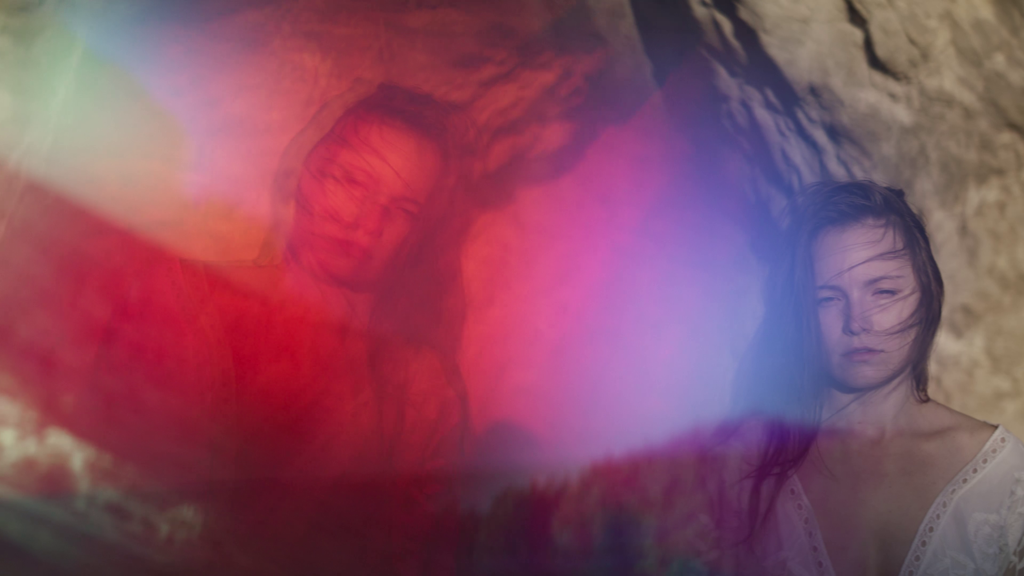If you even have a morsel of introspective curiosity in your body, you have most likely pondered the vast depths of the human unconsciousness at one point or another (possibly while high on some illicit substance, for example). We’ve all done it, but not all of us have the comprehension or eloquence in explaining the self like Descartes or Locke to share these introspective musings.
Most of us think like Michael Bachochin, director of the sterile arthouse sci fi film Parallax, and mistake the hollow pretentiousness of our musing over the unconscious for mind-bending profundity. Much of Parallax is occupied in pseudo-philosophical pontificating on dreams, the self, memory, and so on without the valued insight to justify this mental masturbation in place of an engaging narrative to thread through it.

A painter by the name of Naomi (Naomi Prentice) suddenly awakens in a life that is entirely unfamiliar to her and has no recollection of her existence up until that point, outside of the habitual desire to paint landscapes. Her memories mysteriously blank, she ponders along with the audience what it all could mean and why does it matter, while Lucas (Nelson Ritthaler), the man claiming to be her fiancé, lives through his own personal crisis witnessing his partner’s mental state seemingly deteriorate before his eyes.
While Naomi paints and ponders, she’s plagued by recurring nightmares of drowning in an abyss of water and takes introspective journeys to what seem to be planes of her unconsciousness that she accesses by painting her landscapes, slowly and surely unraveling the lukewarm mystery of who she is and how she got there.

While Parallax isn’t necessarily glacially paced, it’s just frankly obvious that the intrigue and set-up of the “internal mystery” of Naomi runs out of steam early in the first act. There is a clear limit to how many repetitions of her daily uncertainty and desire to know more one can subject one’s audience to before they lose patience and question where this wheel-spinning will lead.
While incessant narrations of shallow philosophical inquiries punctuate the film (like, “If you are happy in a dream and decide to stay, does that make the manifestation of the happiness any less real?”), it inches toward a premise with Inception-esque layers of unconsciousness. With underwhelming plot revelations, it barely strings us along through its bland, half-baked attempts at mind-bending science fiction. It’s clear Bachochin had neither the budgetary means or insight to represent this premise in a cogent manner, leaving his third act a scattershot relay of twists and revelations that confuse more than they stir.

Not helping the effort is his sterile directing style, which renders Parallax a bland slough. Bachochin’s visual restraint and oppressive stillness would be worthy of praise if the film itself ever rose to this level of interest.
The effect is more bland and numbing than the hoped-for depth, and the blandness is matched by the cast’s flat and stiff handling of the material. Perhaps one could be generous and say that the effect was meant to be hypnotic to match the film’s layered approach to consciousness, but in practice, it casts Parallax in an uninspired veneer of sterility.
The death knell for Bachochin’s film was its overreliance on its “high concept” to carry it through its abundant shortcomings. The picture’s conviction to be viewed as a meditation on memory and self overshadows much of its execution to justify said profundity.






